Cosmicat is Saudi Arabia's first female superstar DJ and producer: "They wouldn’t take me seriously - all you can do is show them how it's done"
Nouf Sufyani’s success has ignited a spark within the Saudi music scene, inspiring others to follow in her footsteps. We find out more about her approach to music-making
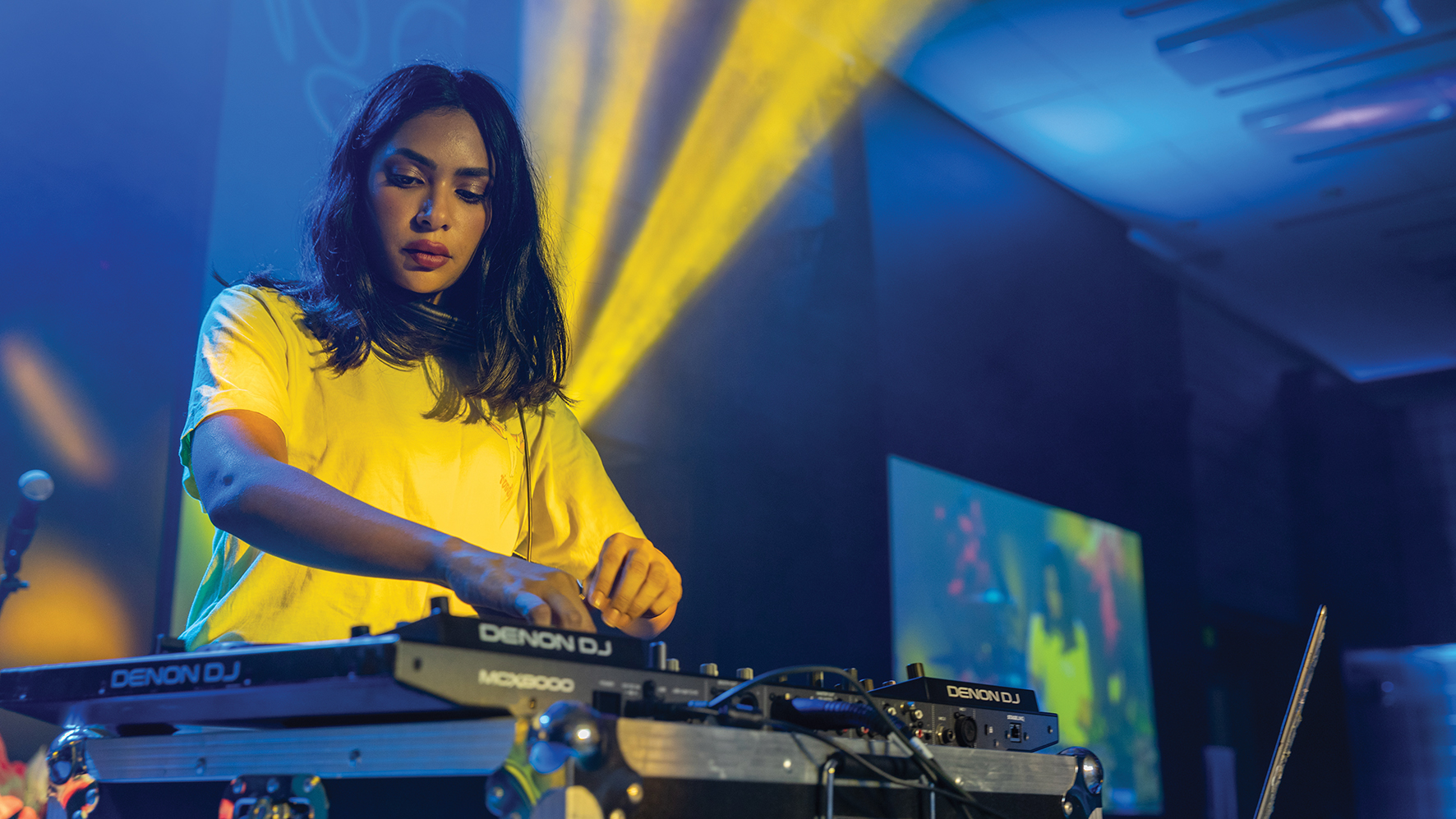
Nouf Sufyani – aka Cosmicat – is Saudi Arabia’s first female superstar DJ. In a country that only allowed women to drive in 2018 – after a 30-year ban – that’s quite an achievement.
Born in the ’90s, when playing music in public was still considered a sin, Sufyani trained as a dentist after leaving school, but music eventually took hold of her life. Taking advantage of the social changes that were happening in modern Saudi Arabia, she secured her first DJ gig in 2018 before releasing her debut EP, Dilemma, in 2020.
Her house-based sound is melodic and progressive, with haunting vocal hooks and solid yet sinewy grooves – as evidenced at various international festival shows over the last year. And Sufyani’s success has caused ripples through the Saudi music scene, with several other female DJs following in her footsteps.
“Things are changing in Saudi,” she explains from her Jeddah studio. “Every year – every month, even – there are more Saudi artists making great dance music. Especially women. It makes me proud that the stigma around this career path for women is nothing to worry about anymore. The only way is up!”
How long have you been interested in music?
"For my entire life! I remember my mom told me that when I was a toddler, I would request – very strongly! – my favourite cassette over and over again. Music was a big thing in our house and my parents used to listen to Arabic classics all the time."
Who were the artists that made the biggest impact on you in those early years?
Want all the hottest music and gear news, reviews, deals, features and more, direct to your inbox? Sign up here.
"My mother adored Abdel Halim Hafez, well-known in Saudi Arabia – and elsewhere – for the famous sample used in Big Pimpin’ and created by Timbaland for Jay-Z. She also liked Khalid Abdulrahman, but my father was a big fan of Warda and Asala.
"Having said that, they both agreed when it came to the music of the living Saudi legend, Mohammed Abdu, which I also love and adore till this day. As I got older, though, I realised that none of the Arabic music I’d been listening to had really rubbed off on me. I was far more interested in the sounds of international pop, R&B and hip-hop.
"When I think back now, I realise there were many artists that had an influence on me. Obviously, I spent a lot of my time listening to Queen B – Beyonce! But then there was Timbaland, Pharrell Williams, Mariah Carey, Alicia Keys, Tupac, Justin Timberlake... Missy Elliott, of course. And Kylie Minogue. In some way, they all seemed to have influenced the sound of the music I make today."
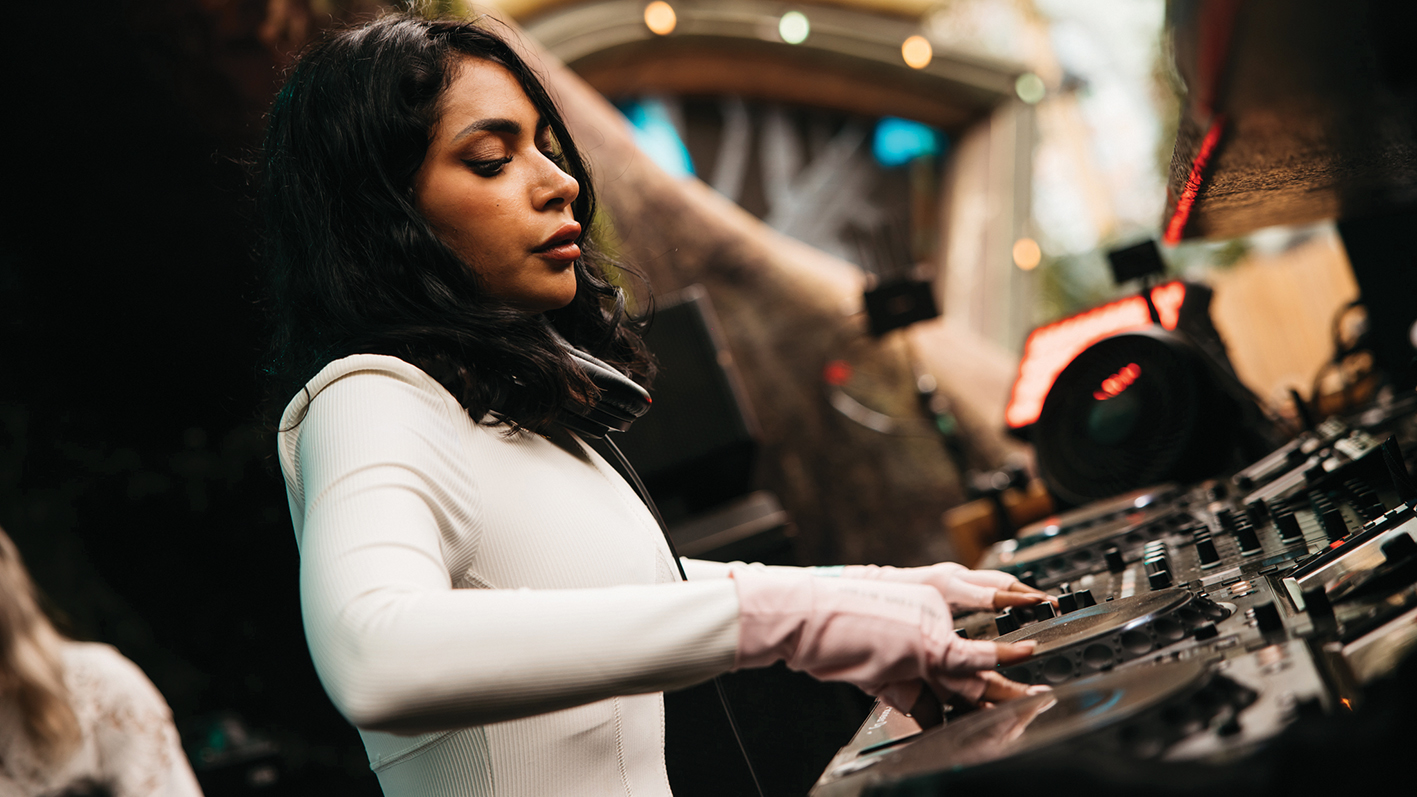
Was the learning of musical instruments part of your childhood?
"If I’m being honest, none of my family or extended family members ever demonstrated any form of interest in any type of art. But they were really big on education and the importance of... knowledge. They always encouraged me to find out things for myself. To always search for the music and the information I needed."
How easy was it to access music in those early years? What was the music scene like in Saudi?
"Even something as simple as getting hold of physical records around the late ’90s and early ’00s was extremely difficult. As for finding instruments or any professional sound equipment or a musical education? Forget it! I was not among the few privileged kids who had access to music lessons. For that, you either had to live abroad, be rich enough to fly in your own music teacher or have access to an international private school. That wasn’t my world.
"On those rare occasions when you did find a record store, the choice was very limited. There was barely anything beyond the most popular songs of the day. And they were mostly Arabic. What you have to remember is that, in the Saudi Arabia of my childhood, music was regarded as a ‘sin’. No one was allowed to play music anywhere in public, not in the local shopping mall or in restaurants or anywhere. If you wanted to listen to your favourite songs, you had to do it in your car or your own house."
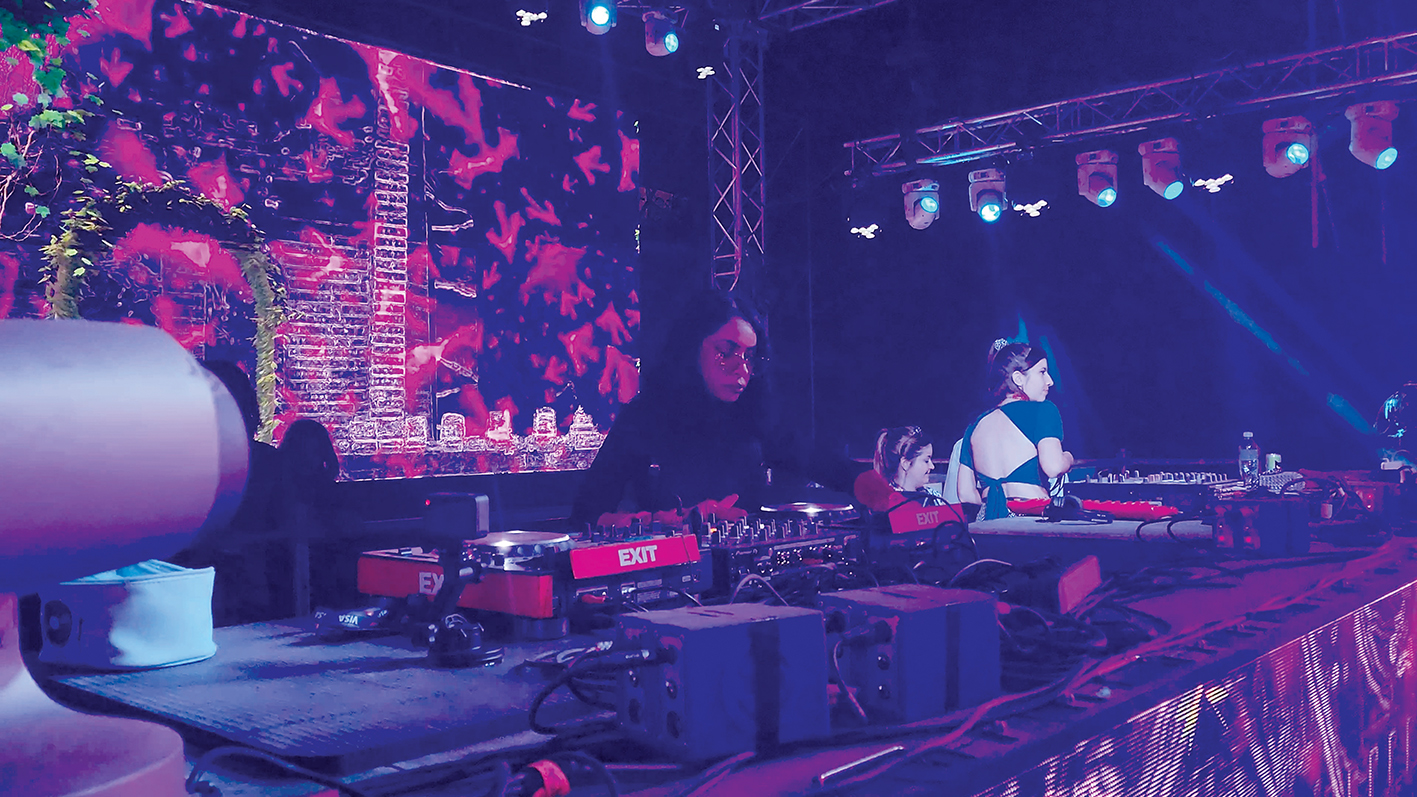
Can you tell us a bit about Saudi’s musical history. Who were its biggest stars?
"Some of the biggest names have been around for a long time and they still define the sound of Saudi: Mohammed Abdu, Rashed Al-Majed, Rabeh Sager, Waed, Abdul Majeed Abdullah. I guess you’d say that they perform classic, Saudi-style music.
"The strange thing is that Saudi has always seen music as a central part of our culture, but, at the same time, it was also frowned upon – right from the ‘80s all the way to early ‘00s – for anyone to pursue music as a career. Especially for women! Thankfully, that is now history.
"I do think that it’s important for people to acknowledge this part of our musical heritage and to have better appreciation for the musicians we have today. Let’s not forget how much they all had to overcome to chase their passion."
As you mentioned, there was also the issue of you being a woman. How did that affect your journey into music? Was it the same for your mum’s generation?
"For me, being a woman who lived in a certain place at a certain time, wanting to pursue a new and unusual type of music wasn’t easy, that’s for sure. It was a time that was full of uncertainty and fear of the outcome. Would I be accepted? Would I be able to continue? Was there going to be a negative backlash?
"But you know what, none of my fears came to pass. Our community has changed drastically in the last 20 years or so and has a completely different mindset. Nobody was that shocked by my choice. I felt supported and appreciated, and that support made me so happy that I was able to push myself even harder.
"As for my mother’s generation? That was a very different time. Although she was able to acquire records and enjoy music, she never had the chance to learn any instruments. She didn’t even attend a real concert in Saudi until 2018. Can you believe that? 2018! She went to see Mohammed Abdu."
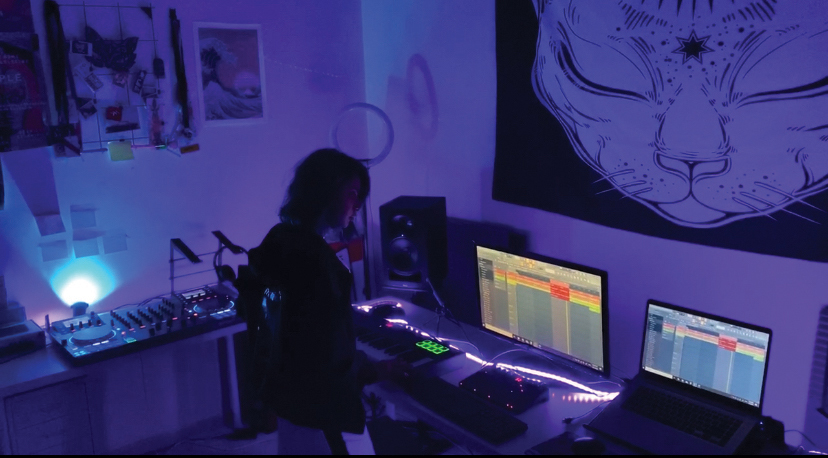
You initially trained as a dentist. What gave you the idea of playing music? Why the change of plan?
"Like so many other producers and DJs, I started out by playing music for myself. I didn’t think of it as a career. Then came the next stage, when I started playing music for my close friends. And the circle of friends started to get bigger. And bigger.
"In those early days, the idea of music being something you could do for a living was definitely shaped by some of our local Saudi artists, such as Vinyl Mode, Baloo and DesertF!sh. Seeing them spin records gave me the push I needed to try it on my own.
"When the bookings eventually started happening, I suddenly found a great joy in all the travelling and exploring different environments. And I was being paid to do the thing I love the most, which is music. There was a point where music seemed to take over my life and I decided... well, I probably wasn’t going to be a dentist."
Did your parents disagree with your decision? Were any other obstacles placed in your way?
"At the time, I felt like I was in a position to make my own decisions. I wasn’t a child, I was a grown woman, so I didn’t think that I needed to get permission from anyone to pursue my own choices in life. And I say that with all due love and respect for my family. Women should not be portrayed as a property of their families or husbands.
"There were a few other obstacles I encountered along the way. Music is something of a niche industry in Saudi and, worldwide, it’s still a male-dominated environment. Yes, I found myself in some situations where people would simply brush me away because I was a woman. They wouldn’t take me seriously and were constantly doubting my knowledge or skills.
"Sadly, that is something that women face every single day in every profession they choose. It was something I also faced when I got my degree. I even faced it when I’d qualified and could put Doctor in front of my name! What else is new? All you can do is show them how it’s done instead of wasting time arguing."
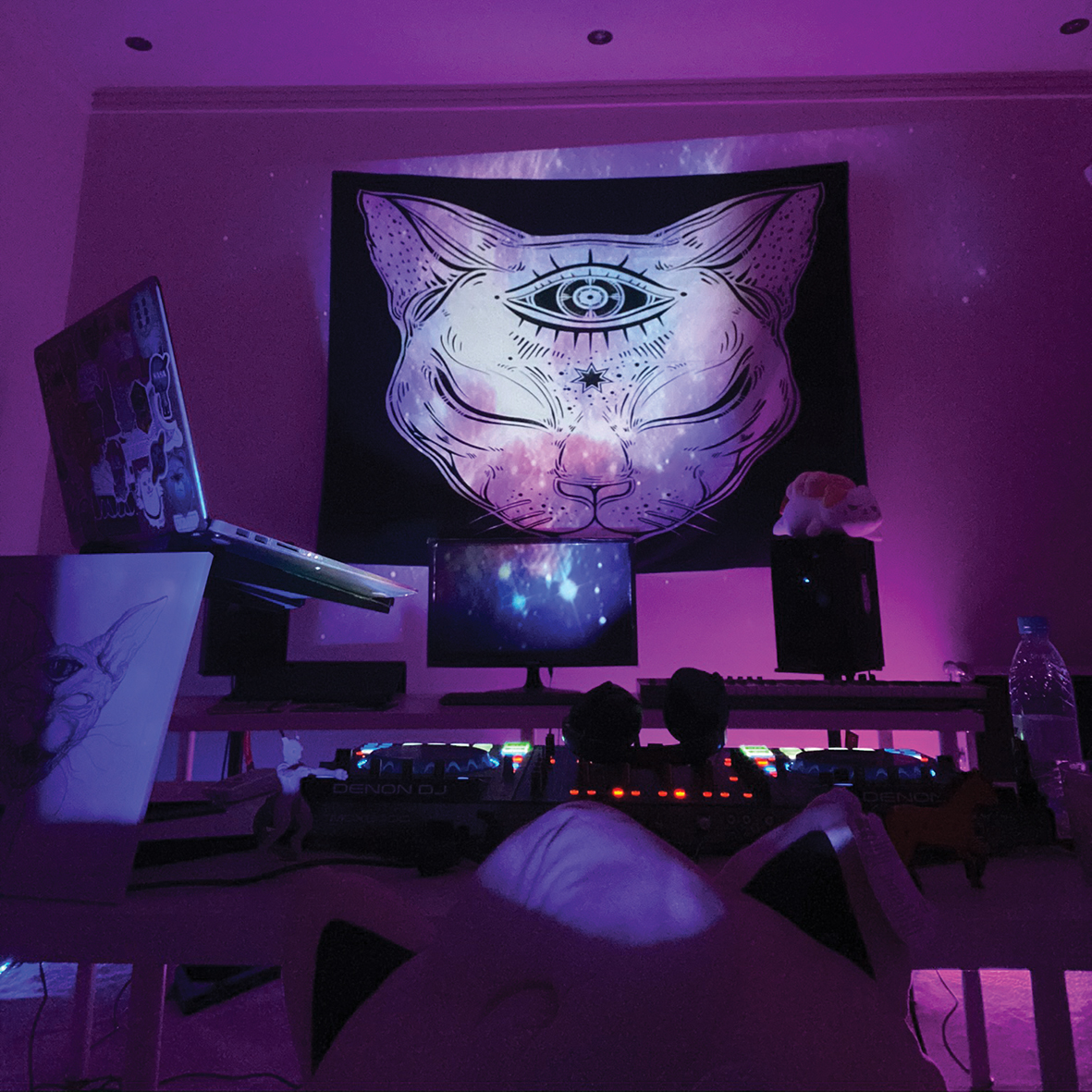
You started out as a DJ and then moved into production. How did it feel making your own music?
"The reason I learned how to DJ is that I had a strong desire to make music, but I did not have the means to make that music. My first encounter with studio software was FL Studio – it was Fruity Loops back then – when I was in high school. So, I started revisiting my limited skills again in 2019, especially after meeting my friend Yann Dulché in Riyadh. He was the one who encouraged me to take music production seriously.
"Like most people, I tried to make use of lockdown in 2020 and took the opportunity to sharpen my production skills further and learn more. I did what I do best and started following tutorials on everything you can imagine in making electronic music. When things got back to normal, I also spent a lot of time hanging around DesertF!sh’s studio a lot. It was an honour to watch and learn and ask questions. All I can say is that this man is a genius.
What was the first song you wrote? Did Saudi culture find its way into the music you were making?
"I’ve written many, many things that never saw the light of day, but the first one that was actually recorded and published was the Dilemma EP with Yann Dulché. I wrote Arabic poetry, I sang on the EP and did spoken word. It was a deep house EP that also featured Baltra, who’s one of my favourite artists. I wanted to make sure that my first record would show my Arab identity loud and clear."
Once you’d started making your own music, how easy was it to generate industry interest? You also did some TV presenting in Saudi; did that help when it came to getting your music out there?
"My TV career was very short and it all started after I became a musician. To be honest, I don’t know if I’ll do TV ever again because it had absolutely nothing to do with my music. I wasn’t a TV celebrity... I was just like every other producer, trying to figure out ways to get my music heard.
"Thankfully, we’re living in the internet age which makes the whole process a lot easier. It’s a great tool for learning how to make music, but it also gives you access to a world of possibilities. Even though I’m based in Jeddah, I’m able to distribute my work and connect with others. In the past, that would have been impossible."
Tell us more about the electronic music scene in Saudi Arabia.
“We have a vibrant underground electronic music scene at the moment. Underground is where it all started for me... and it’s the same for most of the artists in Saudi. Vinyl Mode, DesertF!sh, Baloo, Hats & Klaps, Dish Dash. I’m happy to say that electronic music is constantly expanding for us and there are a lot of new rising stars to look out for, like Dorar and Biirdperson.
"There’s so much music happening now that we’re beginning to create a specific sound for every major Saudi city. For example, house music in my city, Jeddah, is always groovy, nostalgic, and melodic. Some of it is quite minimal, too, but it always makes you want to move your hips.
"I like to say that Jeddah tunes make you feel like you’re in a dream. On the other hand, the sound of Riyadh is very different. They lean more towards tech house and the faster rhythms of techno. If you’re DJ-ing in Riyadh, you go hard and you play big energy sounds.”
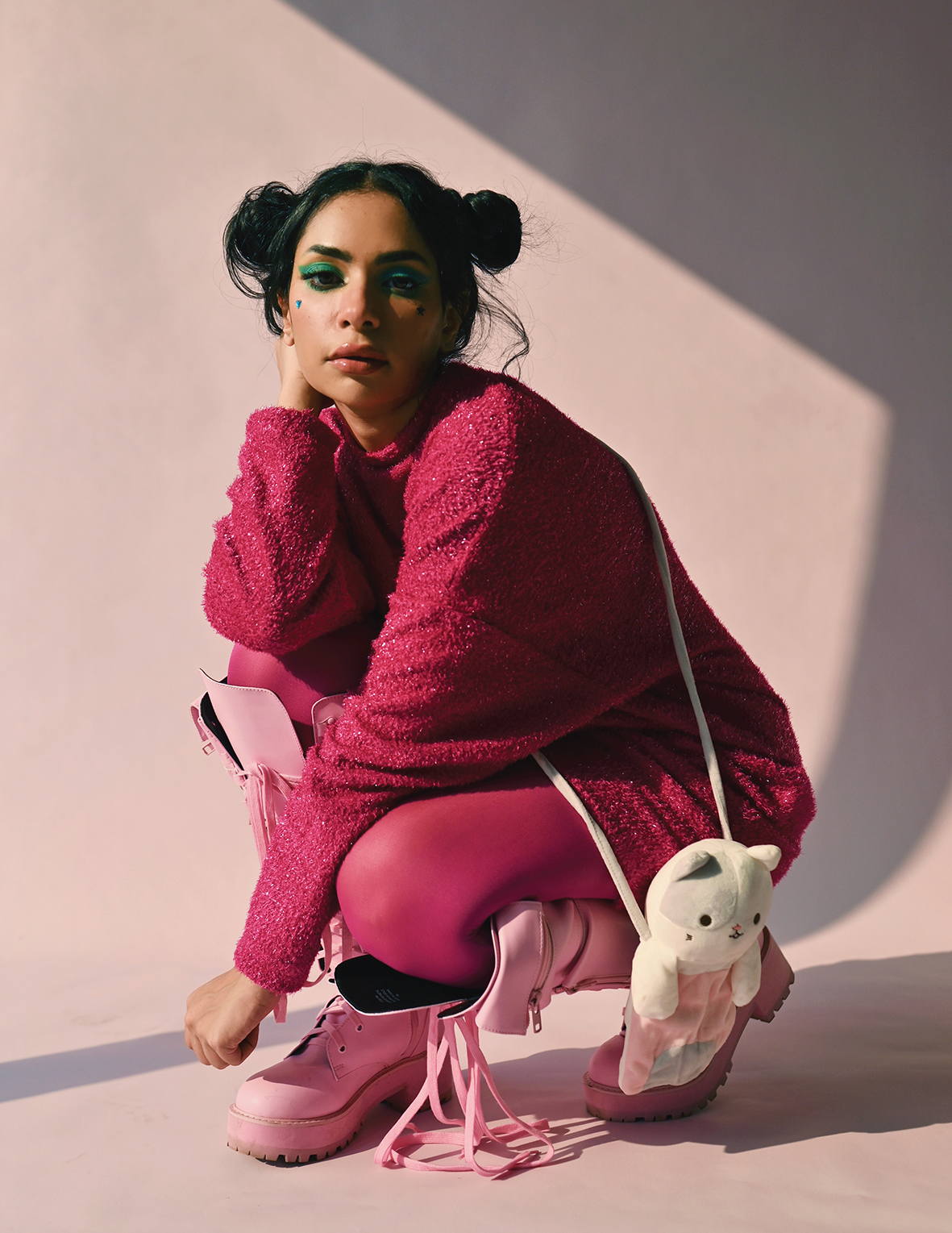
What’s your current studio set-up? Is it a studio unit in the city or is it at home?
"I have a home studio and my set-up is pretty straightforward and minimal. I like my space to be clean and neat. Mainly, it’s just my computer, connected to a large monitor – one that’s big enough to allow me to see those tiny details on sound waves! Apart from that, it’s just a midi keyboard, microphone, piano and a tiny analogue sequencer.
"The DAW I use is still FL Studio and probably 90% of everything I do is in the box. One of the reasons I love FL Studio is because it’s so familiar to me – back in high school, I used it to make my first hip-hop beats! I still find that the user interface is super-friendly and organised.
"I love the fact that it dims my screen automatically, which is gentler on my eyes. The infinite automation possibilities... even the way it lets me organise my playlists with different colours and icons. All the Image Line plugins that come with it are amazing, too; they can do wonders on their own.
Any software synths, plugins, effects that you couldn’t live without?
"For sound design and general day-to-day synth work, my favourite plugin is Serum. For my basslines, I love using sequencers, like Transistor Bass, Groove Machine Synth or Sawer. To be honest, I haven’t gone crazy with software. I like to keep it simple and not overload my CPU with unnecessary programmes that only get used once every six months.
"For my drums, I tend to use high quality samples. Often, I take the attack from one sample and the tail of another to create my own unique drums. That’s when services like Splice and Loopcloud come in very handy because I’ve got access to hundreds of thousands of sounds.
The truth is I go seriously crazy on the vocal effects chain. A lot of CLA plugins and iZotope’s VocalSynth. I’ve even recorded my cats
"After layering up my drums and building a solid groove, I start messing around with interesting chords. Then I pull up Serum and begin the long search for those sounds that will make the song special... the all-important leads and some bold, sweeping pads. Something that will give a big, cinematic quality to the music. Most of my melodies are created on Serum, but I sometimes find myself using FL Keys or Morphine as well.
"At that point, I move to the actual writing and recording. Not everyone does it this way, I know, but I prefer to add all the effects at the very end of the project – some light distortion on the kick, adding some warmth to melody. Nothing too drastic. Again, it’s mainly FL Studio plugins, with a bit of help from Smart Electronix’s Ambience.
"Having said that, I’m not quite so restrained on the vocals. The truth is I go seriously crazy on the vocal effects chain. A lot of CLA plugins and iZotope’s VocalSynth. I’ve even recorded my cats and featured them on one of the tracks from my Ascension EP."
Talk us through a typical day in the studio.
"Since it’s a home studio, I have the privilege of working in the comfort of my pyjamas. I usually have a goal or a certain project in mind. Or maybe that vision only comes once I start working on music. Coffee helps a lot and is arguably the biggest driver in the studio process! [Laughs]
"Ideas for songs come from... like most people, I use my own emotions for inspiration. Sometimes I like to talk about something that people can also relate to on the dancefloor, even it’s just a silly idea that will make people laugh."


Andy has been writing about music production and technology for 30 years having started out on Music Technology magazine back in 1992. He has edited the magazines Future Music, Keyboard Review, MusicTech and Computer Music, which he helped launch back in 1998. He owns way too many synthesizers.
